Get to know our 2021 ELB Elevate Mentors! This all-star studded cast possesses a range of incredible skills and experience to take your career in conservation to the next level.
If you’re interested in getting all the advice you need for a career in the environmental sector, apply for ELB Elevate, our brand new mentorship program today
Katy Alambo
Biologist, Ottawa Riverkeeper
Expertise: freshwater ecosystems and water quality, public outreach and science education, environmental monitoring, scientific writing
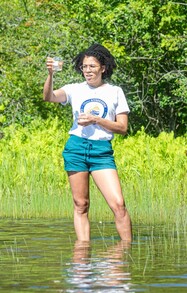
There is nothing more rewarding than connecting people with the environment. As Ottawa Riverkeeper’s Biologist, she leads a number of Citizen Science initiatives providing people with opportunities to learn more about the world around them, while contributing to conservation.
Katy has been featured in television, radio, and print, sharing information about biodiversity and water quality in the Ottawa River watershed, and the steps that people can take to help protect it. Most notably, she has been featured on both CBC and Radio Canada in support of Ottawa Riverkeeper’s campaign to limit winter salt use.
Prior to joining Riverkeeper, Katy attended the universities of Waterloo and Ottawa where she completed her B.Sc.H and M.Sc. in biology, respectively. During her time in academia Katy was very active in mentorship roles, providing guidance and advice to current and prospective students interested in pursuing studies and careers in the sciences. Following graduation she worked briefly in the private sector as an Environmental Consultant for Stantec Consulting Ltd., before moving to Ottawa Riverkeeper.
Over the course of her career Katy has had the opportunity to work with environmental community groups in Quebec and Ontario, as well as environmental stakeholders at the municipal, provincial and federal levels, and Indigenous partners. She has experience reviewing resumés and conducting interviews, and is excited to assist future mentees as they look to begin their careers.
Katy has been featured in television, radio, and print, sharing information about biodiversity and water quality in the Ottawa River watershed, and the steps that people can take to help protect it. Most notably, she has been featured on both CBC and Radio Canada in support of Ottawa Riverkeeper’s campaign to limit winter salt use.
Prior to joining Riverkeeper, Katy attended the universities of Waterloo and Ottawa where she completed her B.Sc.H and M.Sc. in biology, respectively. During her time in academia Katy was very active in mentorship roles, providing guidance and advice to current and prospective students interested in pursuing studies and careers in the sciences. Following graduation she worked briefly in the private sector as an Environmental Consultant for Stantec Consulting Ltd., before moving to Ottawa Riverkeeper.
Over the course of her career Katy has had the opportunity to work with environmental community groups in Quebec and Ontario, as well as environmental stakeholders at the municipal, provincial and federal levels, and Indigenous partners. She has experience reviewing resumés and conducting interviews, and is excited to assist future mentees as they look to begin their careers.
Kate Landry
Senior Manager, WWF-Canada
Expertise: scientific writing, strategic thinking, design thinking, project management
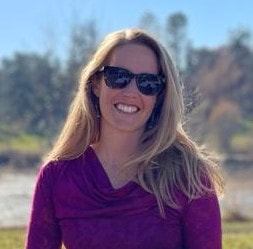
Kate leads WWF-Canada’s national bilingual community action programs to help reverse wildlife loss, increase biodiversity and restore habitat across Canada. She develops strategy and oversees the implementation of projects to mobilize individuals, communities, businesses and government to take measurable conservation action.
Prior to joining WWF-Canada, Kate spent ten years working internationally in conflict and disaster-prone areas, primarily focused on engaging communities to adapt to the impacts of climate change and build their resilience to disasters. Kate is an avid practitioner of human-centered design in all facets of her work.
Kate has substantial experience in leadership, strategy, project management and fundraising, and can offer advice in these areas. In addition, Kate is a project manager by training and understands the opportunities and challenges of being a generalist in conservation and sustainability. She also has first-hand experience in being a young leader, having achieved a director role while in her 20s, as well as a woman leader in male-dominated sectors.
Prior to joining WWF-Canada, Kate spent ten years working internationally in conflict and disaster-prone areas, primarily focused on engaging communities to adapt to the impacts of climate change and build their resilience to disasters. Kate is an avid practitioner of human-centered design in all facets of her work.
Kate has substantial experience in leadership, strategy, project management and fundraising, and can offer advice in these areas. In addition, Kate is a project manager by training and understands the opportunities and challenges of being a generalist in conservation and sustainability. She also has first-hand experience in being a young leader, having achieved a director role while in her 20s, as well as a woman leader in male-dominated sectors.
Dr. Nusha Keyghobadi
Professor, University of Western Ontario
Expertise: scientific writing, post-secondary teaching, conservation research, science outreach
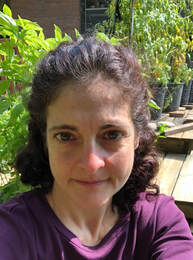
I’m a Professor in the Biology Department at Western University. My research focuses on genetic diversity: where does genetic diversity come from, and how is it maintained or lost over time? I focus particularly on how landscape structure and climate/weather affect genetic variation in insects. I also work on conservation genetics of at-risk butterflies and am currently involved in a collaboration focused on conservation and restoration of the Mottled Duskywing in Ontario.
I teach courses in Environmental Biology, Molecular Ecology and Landscape Genetics. I’ve also undertaken administrative university work, including being Director of Western’s Centre for Environment & Sustainability, and the Acting Chair of the Biology Department.
I’m happy to mentor anyone interested in pursuing a career in scientific research, teaching, and academia. I’m also happy to provide advice to those considering undergraduate or graduate programs, especially in Biology or Ecology.
I teach courses in Environmental Biology, Molecular Ecology and Landscape Genetics. I’ve also undertaken administrative university work, including being Director of Western’s Centre for Environment & Sustainability, and the Acting Chair of the Biology Department.
I’m happy to mentor anyone interested in pursuing a career in scientific research, teaching, and academia. I’m also happy to provide advice to those considering undergraduate or graduate programs, especially in Biology or Ecology.
Karl Lamothe
Research Biologist, Fisheries and Oceans Canada
Expertise: navigating the academic setting and government science, scientific writing and communication skills, challenges in undergraduate and graduate degrees
Research Biologist, Fisheries and Oceans Canada
Expertise: navigating the academic setting and government science, scientific writing and communication skills, challenges in undergraduate and graduate degrees
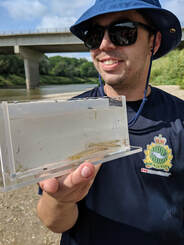
I am a Research Biologist with Fisheries and Oceans Canada in Burlington, Ontario. My work is centered on the development and use of species monitoring program data to inform recovery efforts for freshwater fishes listed under the Species at Risk Act.
My day to day is in front of the computer, developing and performing research studies and providing science advice on topics related to freshwater species recovery. Writing and research are things that I very much enjoy, and have enjoyed since undergrad where I did an Honors thesis on Black Tern population genetics (admittedly, I was a bird person before becoming a fish person).
I received both my Bachelor’s of Science and Master’s degrees in the United States and immigrated to Canada in 2013 to pursue my PhD at the University of Toronto. Following my PhD, I did a postdoctoral fellowship with DFO that concluded with an offer to become a Research Biologist.
Taking my science hat off, I enjoy most things outdoors including cycling, walking my dog Phoebe, and playing disc golf. As a mentor, I’m willing to share my experiences, both the success and failures, to provide perspective as mentees navigate the biodiversity science job market.
My day to day is in front of the computer, developing and performing research studies and providing science advice on topics related to freshwater species recovery. Writing and research are things that I very much enjoy, and have enjoyed since undergrad where I did an Honors thesis on Black Tern population genetics (admittedly, I was a bird person before becoming a fish person).
I received both my Bachelor’s of Science and Master’s degrees in the United States and immigrated to Canada in 2013 to pursue my PhD at the University of Toronto. Following my PhD, I did a postdoctoral fellowship with DFO that concluded with an offer to become a Research Biologist.
Taking my science hat off, I enjoy most things outdoors including cycling, walking my dog Phoebe, and playing disc golf. As a mentor, I’m willing to share my experiences, both the success and failures, to provide perspective as mentees navigate the biodiversity science job market.
Jenna Siu
Coordinator (Conservation Biology), Nature Conservancy of Canada
Expertise: working for nonprofits, obtaining entry level positions, land stewardship, species identification (e.g. herps, butterflies, plants)
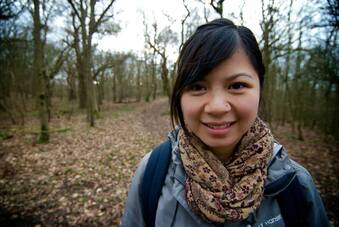
I did not grow up spending a lot of time outdoors and in nature. I came to appreciate nature later in life than most, primarily through my academic experiences. These experiences continue to shape my perspective and approach to my work today. They have taught me to be a critical thinker, open to feedback and how to be a better communicator.
Throughout my career so far I've been fortunate to work with several different taxon (e.g., plants, herps, insects), in various landscapes in Ontario and Canada and for different conservation organizations and projects. Since my MSc, I have mostly worked for not for profit conservation organizations and have first-hand experience with some of the many benefits and challenges to working in this sector.
I attribute much of my success to the people I've connected with over the years who have taught me not just the technical skills and knowledge for doing conservation work, but also how important it is to have a positive support system. I hope to pay forward the kindness that others have shown me.
Throughout my career so far I've been fortunate to work with several different taxon (e.g., plants, herps, insects), in various landscapes in Ontario and Canada and for different conservation organizations and projects. Since my MSc, I have mostly worked for not for profit conservation organizations and have first-hand experience with some of the many benefits and challenges to working in this sector.
I attribute much of my success to the people I've connected with over the years who have taught me not just the technical skills and knowledge for doing conservation work, but also how important it is to have a positive support system. I hope to pay forward the kindness that others have shown me.
Will Van Hemessen
Senior Ecologist, North-Sound Environmental Inc.
Expertise: botany, environmental policy, environmental impact assessment, planning
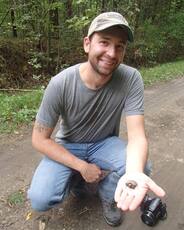
I'm a senior ecologist at North-South Environmental Inc. and I've been working in consulting for over 10 years.
My university degree is in planning and most of my professional work is focused on environmental impact assessment, planning and policy, but my real passion is botany and vegetation ecology.
Outside of work, I'm writing two COSEWIC assessment reports and I've co-authored a few academic publications. I'm on the board of directors of the Field Botanists of Ontario and I've been heavily involved with the Thames Talbot Land Trust. I grew up in the London, Ontario area and my biggest passion is helping to secure conservation land in Ontario's Carolinian Zone.
My university degree is in planning and most of my professional work is focused on environmental impact assessment, planning and policy, but my real passion is botany and vegetation ecology.
Outside of work, I'm writing two COSEWIC assessment reports and I've co-authored a few academic publications. I'm on the board of directors of the Field Botanists of Ontario and I've been heavily involved with the Thames Talbot Land Trust. I grew up in the London, Ontario area and my biggest passion is helping to secure conservation land in Ontario's Carolinian Zone.
Alex Meeker
Project Coordinator (Aquatic Restoration), Conservation Halton
Expertise: managing large scale environmental restoration projects, aquatic ecology, construction supervision, public outreach
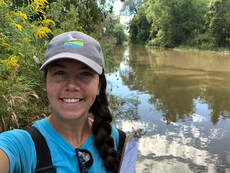
Over the last 5+ years, I have had the opportunity to work in different sectors of the environmental field: consulting, not-for-profit and I'm currently working for a conservation authority. Each has provided me with a unique opportunity to view environmental issues through a different lens with different approaches to these problems.
I have spent multiple years splashing through creeks conducting rapid geomorphic assessments, restoring small streams by hand, and doing electrofishing surveys and fish rescues.
In my current position, I play a role in managing larger aquatic restoration projects ensuring we have the right permits, funding, and overseeing the construction on the ground once the projects are shovel ready. If you're interested in finding out more about aquatic restoration projects (i.e. dam removals, wetlands, and natural channel design) then I'd be happy to chat!
I have spent multiple years splashing through creeks conducting rapid geomorphic assessments, restoring small streams by hand, and doing electrofishing surveys and fish rescues.
In my current position, I play a role in managing larger aquatic restoration projects ensuring we have the right permits, funding, and overseeing the construction on the ground once the projects are shovel ready. If you're interested in finding out more about aquatic restoration projects (i.e. dam removals, wetlands, and natural channel design) then I'd be happy to chat!
David Seburn
Freshwater Turtle Specialist, Canadian Wildlife Federation
Expertise: wildlife conservation, amphibian and reptile conservation, species at risk
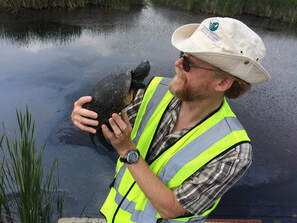
David Seburn is the Freshwater Turtle Specialist with the Canadian Wildlife Federation. David has worked on amphibian and reptile conservation for more than 20 years. He has radio-tracked turtles through swamps, prepared recovery strategies, and spoken to hundreds of people about turtle conservation. As part of his work with the Canadian Wildlife Federation, he has led the eastern Ontario turtle conservation project which has incubated and released more than 2000 hatchlings.
He has published more than a dozen scientific papers on amphibian and reptile conservation. In 2020, he was presented with the Blue Racer Award from the Canadian Herpetological Society for significant contribution to the conservation of Canadian amphibians and reptiles.
He has published more than a dozen scientific papers on amphibian and reptile conservation. In 2020, he was presented with the Blue Racer Award from the Canadian Herpetological Society for significant contribution to the conservation of Canadian amphibians and reptiles.
Chris Herc
Environmental Monitoring Coordinator, Grand Council Treaty #3
Expertise: environmental monitoring program design, water monitoring best practices, resume/experience building, grant writing
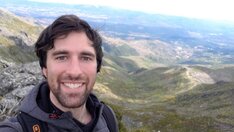
Chris works as Grand Council Treaty #3’s Environmental Monitoring Coordinator where he works with Treaty #3 First Nations to create and implement environmental monitoring programs for water quality, fish habitat, and invasive species. When not coordinating monitoring programs Chris hosts capacity building engagement sessions with Treaty communities, reviews environmental policy, and applies for funding grants to continue current programs and create new ones.
Prior to this Chris graduated from the University of New Brunswick with a B.Sc in Environment and Natural Resources and has worked across Canada in various environmental positions such as: bird bander, fisheries observer, caribou research technician, provincial park interpreter, nature educator, etc.
Potential mentees under Chris can expect to: learn how to design an environmental monitoring program from the ground up; learn water monitoring best practices; learn grant writing skills to acquire program funding (language used, creating budgets, etc.), receive help with identifying resume building opportunities, and anything the mentee would like help with!
Prior to this Chris graduated from the University of New Brunswick with a B.Sc in Environment and Natural Resources and has worked across Canada in various environmental positions such as: bird bander, fisheries observer, caribou research technician, provincial park interpreter, nature educator, etc.
Potential mentees under Chris can expect to: learn how to design an environmental monitoring program from the ground up; learn water monitoring best practices; learn grant writing skills to acquire program funding (language used, creating budgets, etc.), receive help with identifying resume building opportunities, and anything the mentee would like help with!
